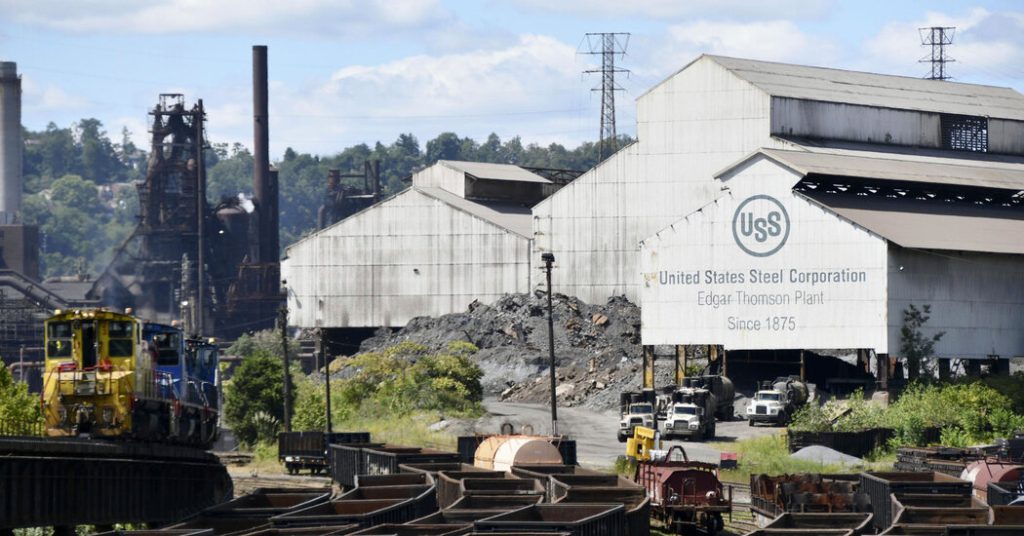President Biden, just weeks from leaving office, used his executive power to block the $14 billion takeover of U.S. Steel by Nippon Steel of Japan, citing national security concerns. The decision marked a departure from America’s open investment culture and could have far-reaching effects on the U.S. economy. Despite the political implications of the move, Biden emphasized that he was acting in the country’s best interest to protect the domestic steel industry.
The president’s decision raised questions about foreign investors acquiring American firms in sensitive industries located in politically significant states and could potentially strain relations with Japan, a close ally and major foreign investor. A federal committee reviewing the transaction had initially chosen not to recommend whether the takeover should proceed, citing concerns about American steel production decline and Nippon’s global business priorities potentially outweighing its U.S. Steel investment commitments.
Nippon Steel indicated it would pursue legal action against the decision, accusing the White House of undue influence in the process. U.S. Steel, on the other hand, continued to support the deal, arguing it was essential for the company’s future growth. Despite criticism from some economists, the union representing U.S. Steel workers praised Biden’s move, highlighting the importance of protecting domestic manufacturing jobs.
The bid by Nippon faced opposition from various lawmakers and leaders, concerned about lost steel production and jobs if the takeover went through. U.S. Steel, with a long history of financial struggles and declining workforce, was a focus of discussion ahead of the 2024 election. The fate of the company, its workers, and the influence of foreign investment on American industries remain uncertain, with potential implications for the broader economy.
Efforts to preserve U.S. Steel’s American roots could have unintended consequences, such as layoffs, relocations, and shifts in investment strategies. Nippon’s commitment to keep the company’s headquarters in Pittsburgh and upgrade mills in Pennsylvania was a key part of the deal. As the company’s stock stumbled amid the uncertainty surrounding the takeover, there were concerns about the impact on workers and local communities.
Despite differing opinions on the deal, with some advocating for investment and growth opportunities and others emphasizing national security concerns and preserving American industry, the decision to block the takeover highlighted the complexities of foreign acquisitions in politically sensitive sectors. The ongoing debate underscores the challenges facing policymakers in balancing economic growth, national interests, and global trade relations in a rapidly evolving world.


